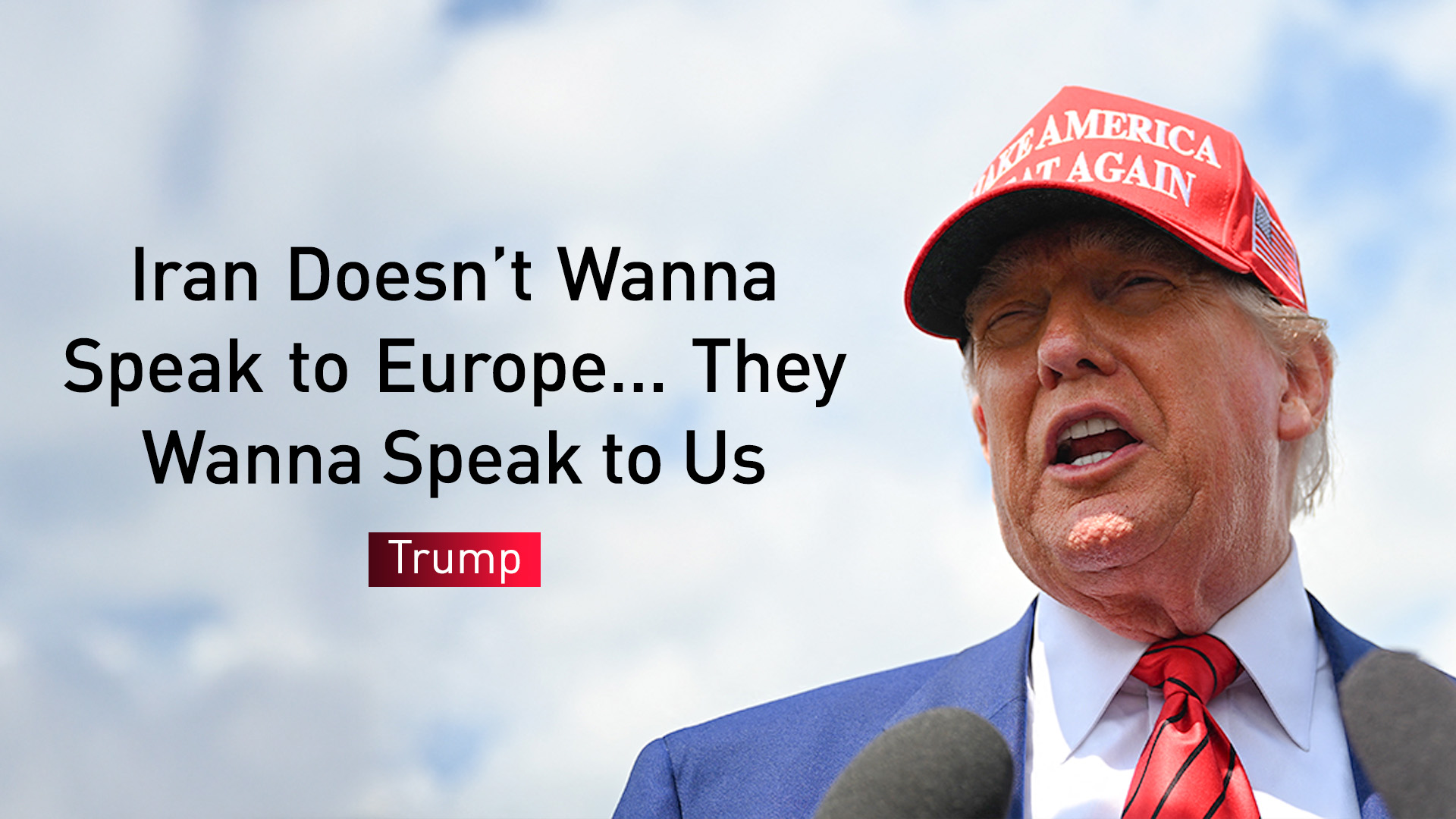Trump Weighs Strike on Iran, Says Israel Winning as Nuclear Concerns Mount
Trump said a U.S. military decision on Iran could come within two weeks, confirmed direct talks with Tehran, and emphasized Israel’s upper hand. He contradicted U.S. intel on Iran’s nuclear program, dismissed European mediation, and hinted at possible U.S. strikes.

By Kamaran Aziz
ERBIL (Kurdistan24) — In a wide-ranging press conference on Friday, June 20, U.S. President Donald Trump addressed the escalating crisis between Israel and Iran, revealing that a military decision could be imminent and that Washington is engaged in direct conversations with Tehran.
"We're ready, willing, and able, and we've been speaking to Iran," Trump said when asked if he would pressure Israel to halt its airstrikes as a precondition for negotiations. "Just a time to see whether or not people come to their senses."
The press conference came as Israeli airstrikes on Iranian military and nuclear infrastructure continued for a seventh day, prompting Iranian missile responses and raising concerns about a broader regional war.
Asked directly if he would request Israel to pause its campaign, Trump responded, "It's very hard to make that request right now. If somebody's winning, it's a little bit harder to do than if somebody's losing."
Trump repeatedly emphasized Israel's advantage in the ongoing conflict. "Israel's doing well in terms of war, and I think you would say that Iran is doing less well," he stated. However, he did not rule out the idea of supporting a ceasefire, saying, "I might, depending on the circumstances."
On intelligence assessments, Trump starkly contradicted his own Director of National Intelligence, Tulsi Gabbard, who had said there was no evidence that Iran was actively building a nuclear weapon. "She's wrong," Trump said. "[They have] a tremendous amount of material... within a matter of weeks or certainly within a matter of months, they were gonna be able to have a nuclear weapon. We can't let that happen."
When asked whether an aerial campaign alone would suffice, Trump demurred: "I'm not gonna talk about ground forces. The last thing you wanna do is ground forces."
He also hinted at a timeline for a potential U.S. strike: "I'm giving them a period of time... I would say two weeks would be the maximum."
Addressing the idea of a broader peace framework, Trump was skeptical of European involvement. "Europe is not gonna be able to help in this one. Iran doesn't wanna speak to Europe. They wanna speak to us."
Responding to a reporter who asked whether he would support allowing Iran to possess civilian nuclear capabilities capped at 3.76% enrichment, Trump said, "They're sitting on the top of one of the largest piles of oil in the world. I just don't know why they need that for civilian work."
On the risk of Iranian proxies striking U.S. targets abroad in retaliation, Trump acknowledged the threat: "We're always concerned about that, and we have to take them out and be very strong."
Asked if Israel could neutralize Iran's nuclear program alone, Trump expressed doubts. "They really have a very limited capacity. They could break through a little section, but they can't go down very deep. They don't have that capacity."
He also responded to remarks by Prime Minister Netanyahu suggesting Israel had the ability to destroy Iran's nuclear capabilities: "We'll have to see what happens. Maybe it won't be necessary."
Touching on broader peace efforts globally, Trump touted his administration's mediation of conflicts in Rwanda, Congo, India-Pakistan, and Serbia-Kosovo. With regard to the suggestion that he should receive the Nobel Peace Prize for his peacemaking efforts, the U.S. President stated, "They won't give me a Nobel Peace Prize because they only give it to Liberals."
Despite his confrontational rhetoric, Trump insisted: "Always a peacemaker. That doesn't mean sometimes you need some toughness to make peace."
The coming days are likely to test that claim. With U.S. military involvement potentially on the horizon and a two-week timeline implied, the Biden administration faces escalating choices that could shape not only Middle East security but the broader balance of global power.
Kurdistan24 will continue to monitor the situation.